Text
How Do You Get Rid Of A Urine Infection?
If you're prone to recurrent UTIs, you can prevent them before they happen.
Most people will experience this unwanted condition at least once in their life. Each year, urinary tract infection affects millions of people. However, women are at a higher risk of developing UTIs than men.
Our urinary tract consists of the bladder, kidneys, and uterus, which process and expel urine from your body. It is responsible for expelling waste in the form of urine. Infection in any of these parts of the bladder is called a UTI or urinary tract infection.
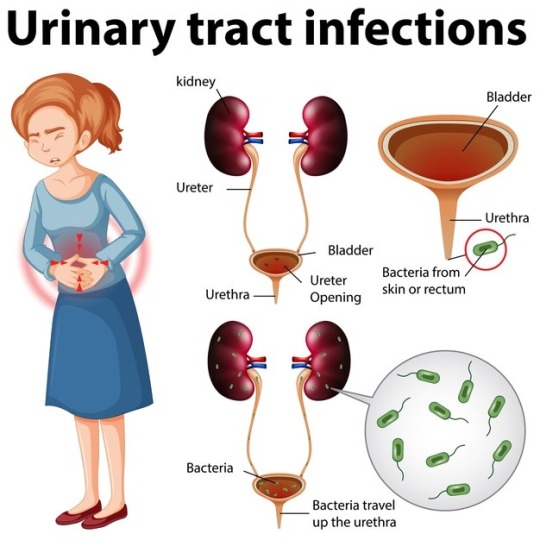
How Do You Get Rid Of A Urine Infection?
Urinary tract infection (UTI) occurs when bacteria enter the urine and travel to the bladder. If the infection is limited to the bladder and urethra, it is called a lower urinary tract infection or cystitis. However, in more severe cases, this infection can spread to the rest of the urinary tract, affecting the bladder and kidneys.
UTI does not always cause signs and symptoms. If you ever experience a UTI, you may notice some common symptoms, including:
urinary frequency
urinary urgency
blood in the urine
Dark or strong-smelling urine
If you are facing any of these signs and symptoms of urine infection, you should see your doctor. The most ideal way to diagnose a UTI is through a urine test. In addition, your doctor may also suggest a variety of other tests.
Tests to diagnose a UTI are:
Urinalysis: This test examines the urine for red blood cells, white blood cells, and bacteria. The amount of these white and red blood cells in the urine can indicate an infection.
Urine culture: A urine culture is used to determine the type of bacteria in the urine.
CT scan: A CT scan is like an X-ray that takes cross-sections of the body. This test usually looks like an x-ray where you will get a clear picture of the infection.
Ultrasound: In this test, sound waves create a picture of the internal organs. With this test, the Urine Specialist can check the severity of the infection.
Depending on the results and the severity of the infection, a doctor may suggest treatment options. Treatment of urinary tract infections depends on the part of the tract affected. Antibodies are often the first line of treatment to treat a UTI. However, home remedies can also be beneficial in treating UTIs. However, if your condition is severe, antibodies are always the preferred option.
Take antibiotics
Antibiotics are an effective treatment for urinary tract infections. However, your body can resolve minor and uncomplicated UTIs on its own without the help of antibiotics. Complicated urinary tract infections will require medical treatment.
Antibodies are the standard treatment for UTIs because they kill the bacteria that cause the infection. However, you should only take it after proper consultation with the doctor.
Home remedies to treat urinary tract infection
Some research has shown that home or natural remedies for UTIs can be an ideal way to treat UTIs. These home remedies have been a part of our traditional medicine systems for so many years.
To treat UTI without antibiotics, you can try these home remedies mentioned below.
Keep hydrated
Drinking enough water is one of the easiest ways to help prevent and treat UTIs. Water allows the organs of the urinary tract to efficiently remove waste from the body while retaining vital nutrients and electrolytes.
Staying hydrated can dilute urine and ensure it moves through your system faster. This makes it difficult for bacteria to reach the cells of the urinary organs.
Therefore, you must drink enough water to stay hydrated. It is estimated that a person should drink at least six to eight glasses of water every day.
Urinate when the need arises.
Urination puts pressure on bacteria in the urinary tract and helps flush them out. It also reduces the exposure time of urine bacteria to cells in the urinary tract. Therefore, it reduces the risk of urinary infections.
Therefore, you should always urinate, especially when you feel like it, to help prevent and treat UTIs.
Get enough vitamin C
Vitamin C is essential to get rid of urinary infections. It is an antioxidant that helps improve the functioning of your immune system. It reacts with nitrates in the urine to form nitrogen oxides which can kill bacteria. Also, it can lower the pH level in the urine, which reduces the chances of survival of bacteria.
However, taking supplements other than vitamin C can maximize its benefits. The National Institutes of Health study suggested that women should get at least 75 mg of vitamin C per day, while men need about 90 mg per day.
Eliminate bladder irritants from your diet
When you have a UTI, caffeine, alcohol, spicy foods, and artificial sweeteners can irritate your bladder. However, eating healthy foods like high-fiber carbohydrates is good for your digestive system and can help prevent bladder infections.
Soothe UTI pain with heat
The inflammation and irritation caused by a UTI can cause a burning sensation and pain around the pubic area. Using a heating pad can help soothe the area. However, keep the heat level low and do not apply it directly to the skin.
Consider herbal remedies
You may also find some UTI relief by taking herbs like bearberry leaf. Research shows that it can prevent bacteria from sticking to the walls of the urinary tract. D-mannose supplements also help treat urinary tract infections. It is a simple sugar found naturally in fruits, including oranges, apples, and blueberries.
Book an Appointment with a health Specialist before it's too late.
0 notes
Text
7 Tips For Choosing The Right Orthopedic Surgeon
Once you decide to have orthopedic surgery, it is a decision of relief and anxiety at the same time. Patients are often anxious to learn that they have to undergo surgical treatment, but at the same time speculate about the procedure and its results. One thing for the patient and her family to think about is which orthopedic surgeon and hospital are best for treating orthopedic injuries.
No subjective or objective evaluation can help you choose the right orthopedic surgeon. However, some parameters are useful in making a choice.
Thus, the aspects to be taken into account when choosing an orthopedic surgeon have been drafted.
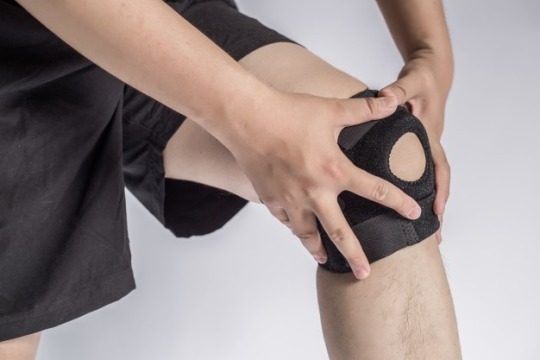
Let's discuss how to choose an orthopedic surgeon.
Start with References
Referrals are the preferred way to begin your search for an experienced orthopedic surgeon. The first resource for referrals should be your primary care physician to recruit all orthopedic surgeons. Don't overlook online reviews and conversations with family and loved ones before narrowing your list down to one option.
Location
Once you have compiled the list of all orthopedic surgeons, narrow down the ones that seem unattainable in terms of location. Choose the orthopedic surgeon, whom it is convenient to reach; otherwise, you will waste your time traveling. Mainly in an emergency, the location can lead you to great agony and despair. So choose an orthopedic surgeon who won't force you to travel or burn your pockets.
Research For The Orthopaedic Surgeon’s Credentials
The most crucial aspect that you need to rely on is conducting thorough research on the orthopedic surgeon's experience and credentials. Get an overview of their training, experience, certification, and history with orthopedic surgeries. Years of experience, area of specialization, research publications, and speculation about your institute of practice are all strong indicators.
Since the accuracy of diagnosis and treatment depends on the orthopedic surgeon's experience, don't overlook his or her credentials. Also, choose the orthopedic surgeon for your problem area. For example, not all orthopedic surgeons have hands-on experience with shoulder displacement surgery.
Communication Skills
The next factor you should rely on when choosing the right orthopedic surgeon is to think about how they treat you. You should assess the doctor's communication skills to be clear about the way forward. Every deal is a two-way process that encompasses trust and communication. If you can put your thoughts on the table without hesitation and the surgeon accepts it, then this doctor is definitely perfect.
Evaluate the hospital
Since the treatment must be performed in a hospital, an inpatient evaluation by your orthopedic surgeon is also essential. Have a facility checklist as you evaluate the hospital, as facility infrastructure and availability have a direct impact on orthopedic treatment.
Look for a dedicated lab and operating room where orthopedic procedures can be performed unobstructed. Home environment monitoring devices are also necessary because these little mishaps can interfere with orthopedic treatment, so be careful!
Evaluate equipment and technology.
Choose the best hospital that is fully supported by modern technology and equipment. The lack of adequate technology can lead to errors in processing. However, with all the modern technologies available, the success rates of orthopedic surgeries tend to increase. Patients have the right to personalized treatment plans, and no one is placed in forced treatment programs that are unlikely to work.
Patient Testimonials
Listening to the comments of the patients operated on by the orthopedic surgeon is another excellent way to gain confidence in the surgeon. Good surgeons let you talk to their previous patients where you can get to know the treatment and the surgeon very well.
Some hospitals host interactive camps and sessions involving both orthopedic surgeons and recovered patients. Try to attend these interactive sessions to better understand and make a better decisions.
conclusion
An orthopedic surgeon plays a vital role in enabling an accurate diagnosis and treatment procedure. The surgeon helps restore your health to normal and helps you get back to your lifestyle. Therefore, make a wise decision while putting your health in other hands.
0 notes
Text
Risks And Precautions For A Pregnant Woman During Coronavirus
Pregnancy is a special feeling of happiness that every mother appreciates. But, such feelings have been replaced by a mixture of anxiety, fear, and agony due to the terrible coronavirus pandemic.
Reports suggest that pregnant women are no more at risk of becoming seriously ill than other healthy adults if they have coronavirus. But because of the changes women go through during pregnancy, they are more likely to get a certain infection.
The vast majority of pregnant women notice only mild to moderate cold/flu symptoms and coughs. Cough, shortness of breath, fever, headache, and loss or change in the sense of taste or smell are other appropriate symptoms.

What effect does the coronavirus have on pregnant women?
It is not yet confirmed whether pregnant women are more likely to be infected with the coronavirus than other healthy people. Despite this, pregnant women are advised to reduce the social bond with social distancing.
In general, pregnant women are not at as much risk as healthy adults of developing serious illnesses or risks if they are affected by the coronavirus. If you are pregnant and your flu-like symptoms get worse over time, it may mean that your chest problem is getting worse and you may need special treatment.
If you experience more severe symptoms or your recovery is delayed, contact the closest best gynecologist immediately.
Precautions During COVID-19
Information on pregnancy-related coronaviruses is limited. But every health organization suggests that pregnant women treat COVID-19 the same as other viruses, such as cough/cold / seasonal flu, and take the same precautions to prevent it. These precautions are:
Stay home and avoid meeting outsiders. Wash your hands with soap and water or use hand sanitizer.
Be prepared for the delivery and make arrangements to get to the medical center. Giving birth in a hospital is critical, even during the COVID crisis.
Keep visiting your gynecologist or midwife for routine checkups. Contact your doctor immediately in case you experience abdominal pain, watery discharge, bleeding, and severe headache.
Wash your hands well before and after feeding your baby.
Use clean cloths and sterilize all utensils and dishes that come in contact with you or your baby.
Breastfeed your baby continuously for an hour after birth. Save your baby from communicable diseases.
Keep your baby close to you. Perform kangaroo care for small or premature babies.
Wear a medical mask while breastfeeding.
Disinfect and disinfect the surfaces around you or your baby regularly.
Stay at least 1 meter away from other people showing COVID symptoms.
Opt for virtual consultations over prenatal visits during pregnancy. However, visits are required for some tests, such as ultrasound, blood tests, and fetal tests.
During pregnancy, females notice various changes in their bodies that could make them more susceptible to viruses like coronavirus.
Pregnant women should continue their pregnancy by following the same precautions, such as washing their hands and staying away from infected people.
Does COVID-19 pose risks to unborn children?
The evidence is not yet clear on whether or not the coronavirus affects the fetus, so staying healthy at home is the best option.
Covering your mouth and nose when coughing or sneezing and washing your hands is essential. And traveling to countries heavily infected with the virus is not recommended during pregnancy.
Does getting sick with the virus increase the risk of miscarriage?
According to the CDC, the massive risk of miscarriage or fetal malformations was not mentioned in the instructions for pregnant women with the virus.
Based on information from other coronaviruses, such as SARS and MERS, experts note that infected pregnant women may be at increased risk for certain problems, such as preterm delivery. However, these data are minimal and infection may not be the direct cause of preterm delivery.
If a mother is coronavirus positive, can she breastfeed her baby?
Currently, there is no evidence that the virus is present in breast milk. Since the virus is transmitted through respiratory droplets, pregnant women should wash their hands and consider wearing a mask to protect their unborn babies from the virus.
Experts recommend that mothers infected with the crown let someone else feed the baby.
Labor and delivery
If she is infected with the virus and gives birth, she will be offered to deliver in a unit run by a gynecologist or obstetrician. This is so the team of experts can take care of you and your baby more effectively.
The care will be carried out in the specific maternity ward for infected women. You may see midwives and the maternity team wearing protective aprons, gloves, masks, or goggles.
These things are very essential to keep you, your baby, and your caregivers safe, and to stop the spread of the virus.
After your baby is born, you should be able to have close contact unless your baby has health problems and needs proper care in the neonatal unit.
do you have any questions or need any help?
If you have any questions or concerns about pregnancy during the COVID period, please speak to the best gynecologist in Amritsar.
0 notes
Text
Nasal Valve Collapse: Types, Causes, And Treatment Options
Do you still have a stuffy nose? Are you having trouble sleeping because you can't breathe through your nose? Is obstructive nasal airflow interfering with your quality of life?
If so, you may be one of those 134 million Indians who suffer from nasal obstruction or collapsed nasal valves.
Nasal valve collapse is defined as narrowing of the nasal valve. Also known as nasal valve stenosis, it is one of the most common causes of nasal obstruction.
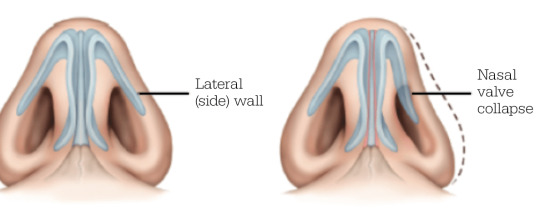
Your nasal valve is located in the middle towards the bottom of your nose. Its main function is to regulate airflow. Since the normal structure of your nasal valve is very narrow, any further narrowing can further restrict airflow. In addition, it can sometimes lead to a complete blockage of the nasal airways.
There are mainly two types of nasal valve collapse; Internal and external.
Internal nasal valve collapse
This part is between the skin and the respiratory epithelium [the lining of the airways that moistens and protects the airways]. The weakening or narrowing of the upper lateral cartilage can cause the internal nasal valve to collapse.
External nasal valve collapse
Your external nasal valve is made up of columellae [the piece of skin and cartilage that divides your nostrils], the nasal rim, and the nasal floor. Your nasal valve can collapse if it is weakened from the removal of the lower lateral cartilage.
The nasal valve can collapse on one or both sides of the nose. Also, anyone can get this disease, regardless of age. Although it is not a critical condition, it can appear aesthetically unpleasant and in some cases can cause breathing problems and snore.
Therefore, you must determine what is causing the narrowing of your nasal valves.
Rhinoplasty: Rhinoplasty is plastic surgery of the nose in which the lower lateral cartilage is partially removed. This can weaken your external valve and cause it to narrow. Therefore, it can lead to the collapse of the nasal valves.
Deviated septum - A deviated septum can be the result of injury or trauma to the nose. It can also narrow your valve and cause it to collapse.
In addition to the causes mentioned above, there may be other causes of nasal valve collapse. These include:
Aging
Weak nasal cartilage
Scar
Enlarged tissues
Inflammation
Trauma to the nose
However, in some cases, the collapse of the nasal valve can be inherited. However, this condition is more likely to occur in people with narrowed nostrils.
Therefore, you must make an accurate diagnosis of nasal valve collapse
An ENT doctor has the expertise to diagnose nasal valve collapse. He will ask you questions about your medical history or if you have had a history of nasal surgery.
In addition, she will also examine your symptoms. Since deviated septa and enlarged turbinates can also cause similar symptoms, the doctor can evaluate them with a proper diagnosis.
Treatment options for collapsed nasal valve:
Non-surgical treatments
An ENT doctor may suggest nonsurgical treatment if your condition is not serious. The most common non-surgical treatment options for the collapsed nasal valve are:
Nasal steroids and medications.
Medications and steroids are the first lines of treatment prescribed before surgery. These medications are recommended for people with mild symptoms. However, you should only take these medications or steroids if they are prescribed by your ENT specialist.
Nasal dilators
Nasal dilators are tubes used to relieve the symptoms of a collapsed nasal valve. It is a device that manually widens the nasal valve. You can use these dilators within the nasal valve area.
Balloon sinuplasty
Sinuplasty involves inserting a balloon into the nose. This treatment is suitable when the collapse of the nasal valve is not severe.
A thin, flexible catheter is used to insert it into the septum. This allows the tissues of the nose to dilate. The balloon is then gently pushed into the nose to reduce the collapse of the nose tissue.
Decongestant therapy
It involves several techniques to help reduce or eliminate nasal obstruction. Decongestant therapy is the first-line treatment for collapsed nasal valves before surgery.
In this therapy, special devices are used to help reduce swelling by changing the way you breathe through your nose.
However, if you don't see any recovery, surgery could be the last resort. Surgical options are suggested depending on the severity of the collapse or your condition.
Surgical options for nasal valve collapse are:
Cartilage graft
In cartilage graft, a piece of cartilage is transplanted from the back of the nose or upper respiratory tract to the nasal floor [from the front of the nasal valve area]. This transplant helps to strengthen and strengthen the area reducing the risk of collapse.
Septoplasty
This surgical option helps treat the cartilage in the middle of the nose. In addition, it is made to solve the problems that can arise when the nasal valve collapses.
In this surgery, a small incision is made inside the nostrils. Then the flabby tissue is removed and a support frame is placed to fully tighten the area of your cartilage.
Open rhinoplasty
India ranks fourth in terms of open rhinoplasty surgery.
Open rhinoplasty is performed to repair severe collapse of the nasal valves. In rhinoplasty, an incision is made in the nostril and cartilage. Then the flabby tissues and other tissues are removed. After that, a new framework will be implemented and supported.
Later, a plastic surgeon can also perform a secondary rhinoplasty to make your nose aesthetically attractive.
You can receive treatment under the guidance of the best ENT doctors in Amritsar. ENT doctors have extensive experience in handling all types of ear and nose surgeries.
#ENT doctors in Amritsar#ENT hospital in Amritsar#Nasal Valve Collapse#Nasal Valve Collapse treatment
0 notes
Text
8 Healthy Tips To Prevent Heart Attack
Nothing can beat a healthy heart. Yes, it is, but then the question arises of what to do to prevent a heart attack.
The different platforms are full of tips to prevent heart disease. This is an effort by Smt. Paarvati Devi Hospital to inform you of valuable tips that can protect your heart.
The following tips have been verified and compiled by expert healthcare professionals who have years of experience in proper heart care, thereby helping patients lead healthy lives.
Here are the 8 Healthy Tips To Prevent Heart Attack and improve your heart health:
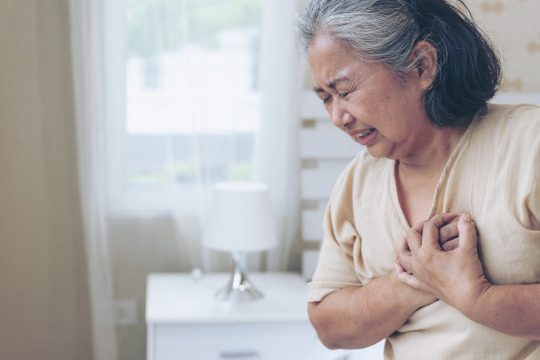
Keep a healthy weight
Being overweight will surely ruin your health, especially if there is more fat around the abdomen. The main reason being overweight can cause heart disease is that it can lead to high blood pressure, high blood sugar, and high cholesterol.
A combination of the following, known as metabolic syndrome, can be fatal because it increases the risk of heart disease:
Fat around the abdomen
Arterial hypertension
Hyperglycemia
High triglycerides
It is time to start losing weight if you are a victim of excess weight. A little weight loss can get you closer to improving your heart health.
Get regular exercise to prevent heart attacks.
Exercise combined with other lifestyle measures, such as maintaining your weight, can be more profitable.
One should enjoy exercising for at least four days a week, for a total of 150 minutes of exercise per week.
Anyone who exercises daily is doing the best thing to take care of their heart.
This reduces the risk of diseases that can affect the heart in one way or another.
Regular exercise regulates blood pressure, controls blood sugar and cholesterol, which ultimately leads to the prevention of heart disease.
Not to mention, gardening, climbing stairs, doing housework, and other household chores also contribute to heart health.
Don't smoke or use tobacco
The carbon monoxide in cigarettes replaces some of the oxygen in the blood, which triggers the problem of high blood pressure and increased heart rate, as the heart has to work hard to provide oxygen.
Tobacco is synonymous with slow death. The use of tobacco accumulates plaque that narrows the arteries and becomes the main cause of heart attack.
No amount of tobacco can be considered safe in any way. So quit smoking today before your heart is healthy.
Eat a heart-healthy diet to prevent heart attacks
Help your heart stay healthy with a healthy diet. Now, the diet here not only means what to include but also covers what to avoid and in what quantity.
A diet rich in fruits and vegetables that can protect the heart from many diseases should be part of your daily diet.
Try to eat beans, low-fat or fat-free dairy products, and fish.
Control your alcohol consumption.
Eat healthy snacks like:
Walnuts
Yogurt
Grapes and blueberries
Popcorn
Avoid excessive intake of salt and sugar in your diet.
Avoid saturated fat, trans fat, and carbohydrates.
Some common sources of saturated fat are:
Red meat
Whole dairy products
Coconut and palm oils
Avoid consuming fast food or junk food. Basically, it is a pre-prepared or packaged food that has low nutritional components. These foods are known to be unhealthy because they contribute to weight gain, high blood pressure, and high cholesterol.
Say yes to good health by saying no to junk food.
Get enough sleep
Being deprived of sleep can slowly affect your health.
People who don't get enough sleep are at increased risk of obesity, high blood pressure, increased risk of heart attack, and diabetes.
Most adults need a good seven to nine hours of stretching sleep each night.
Stick to a schedule and stick to it religiously by going to bed and getting up at the same time every day.
It will refresh you and help you take better care of your health.
To manage stress
Stress is the greatest enemy of your health. Don't let it rule your health and prepare to fight back by performing various relaxing activities for the mind and body. This is sure to help keep heart disease at bay.
Control diabetes and blood pressure
High blood sugar levels and high cholesterol can damage the heart and blood vessels.
Checking them regularly can help you monitor your heart health.
If a person has a similar family history, more care is needed when looking out for these health problems.
Control the consumption of these foods and the activities that can cause high blood sugar or blood pressure.
Regular checks
Simple monitoring by recognizing symptoms is not enough. Something more is needed to ensure good heart health.
Ignoring even a minor warning sign can cost you dearly.
Never overlook any symptoms or health problems and seek expert advice immediately.
Participate in regular reviews and evaluations, even if you don't have noticeable problems. These check-ups can detect any health problem at the earliest stage and treat it before it starts to affect you.
Summary
It has been observed in most cases that these tips are very effective in preventing heart disease as much as possible.
But sometimes there comes a time when the intervention of an expert is necessary.
Choosing the right cardiologist and being able to receive the right treatment is all you need at this point.
Be prudent. Staying healthy!
0 notes
Text
What Is The Most Common Spinal Cord Tumor In Adults?
It can be quite difficult for anyone to accept the fact that they have a spinal cord tumor.
The risk of developing any type of brain or spinal cord tumor is usually high in adults. It occurs due to your sedentary lifestyle or daily stress.
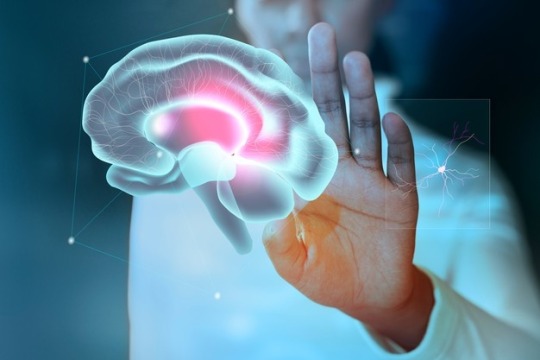
What Is The Most Common Spinal Cord Tumor In Adults?
A spinal tumor is defined as an abnormal growth that originates in the tissues that make up the spine. Cells in your spine can grow out of control. These tumors occur when something is wrong with genes that regulate cell growth, allowing cells to grow out of control.
Where do spinal tumors form?:
The spinal column is made up of different tissues that run along the back to the neck and pelvis. A tumor can form in almost any tissue in the spine. Spinal tumors are formed mainly in:
Bones that make up the vertebral vertebrae
The cartilage that makes up the joints of the vertebrae.
The intervertebral disc that cushions the space between the vertebrae.
Peripheral nerves that come out of the vertebrae.
You may hear your neurosurgeon talk about tumor grades. This tumor classification can make the difference between slow-growing and fast-growing types of tumors. Some tumors change grade as they progress, usually to a higher grade. Grade 1 and Grade 2 tumors are slower-growing tumors than Grade 3 and Grade 4 tumors.
Also, grade 1 and grade 2 tumors spread to nearby tissues. In contrast, grade 3 and grade 4 tumors spread more rapidly to other tissues.
Most common types of spinal cord tumors in adults:
Tumors are classified according to where they grow in the spine and their degree of malignancy. Some tumors are cancerous while others are not.
Let’s take a look at some of the most common types of spinal cord tumors in adults:
Primary and metastatic vertebral tumors
Primary tumors of the spine originate in the spine. They are relatively rare, non-cancerous, and represent a small percentage of spinal tumors.
Tumors that spread to the brain from a primary neoplasm in other parts of the body are called metastatic tumors of the spine. A study has shown that between 30 and 70 percent of cancer patients develop metastatic spinal cancer during their illness.
Based on their location in the spine, tumors are classified as follows:
Intradural These tumors form within the dura and may or may not affect your spinal cord.
Intramedullary: These tumors are intradural tumors that develop within the spinal cord.
Extradura These tumors are from inside the spine and can affect the vertebrae. These spinal tumors are located in the epidural space, which is the area around the tough membrane that protects the spinal cord.
Other types of tumors in adults
Astrocytomas
Astrocytoma is a cancer that occurs in the brain and spinal cord. It begins in the astrocyte cells that support our nerve cells. Some astrocytomas can grow slowly, while others can be aggressive cancers that can grow quickly.
A recent study has shown that this tumor is more common in the 20 to 45 age group. Also, men are more likely to develop this tumor than women.
Ependymomas
These are cancerous tumors that grow in the brain or other parts of the spine, including the neck and upper back. First, it forms in ependymal cells, located in the middle of the spinal cord, and then in fluid-filled ventricles, located in the brain.
Hemangioblastoma
It is a non-cancerous tumor that forms in the lower part of the brain, spinal cord, or retina. This tumor grows in the wall of a blood vessel but does not invade nearby tissue. As this tumor grows, it can cause neurological symptoms such as headache, weakness, sensory loss, or problems with the balance of coordination.
Meningiomas
This tumor begins in the meninges, a membrane that surrounds the brain and spinal cord. Meningiomas are among the most common types of tumors that form on the head. Most of these tumors grow slowly without causing symptoms. However, sometimes its effect on nearby brain tissue can seriously impair your brain.
Neurofibromas
These tumors are benign tumors that grow on the nerves of the body. However, these tumors can grow anywhere in the nervous system, including the brain, spinal cord, and nerves.
Hormonal changes associated with pregnancy or puberty can lead to an increase in neurofibromas. These tumors are generally considered non-cancerous, but they can also sometimes become cancerous. The first symptoms may be mild. However, complications can include hearing loss, learning disabilities, and severe pain.
Contact the best neurosurgeons in Amritsar for treating all types of neurological disorders. You can get the best treatment with very advanced care.
0 notes
Text
What Are The Common Symptoms Of Viral Fever?
Most of us already know the classic symptoms of viral fever; chills, shaking, uncomfortable heat, or skin that is red and hot to the touch.
To what extent can body temperature be considered a case of viral fever?
The ideal body temperature is about 37 ° C (98.6 ° F). Anything above that would be considered a fever. However, in viral fevers, your temperature can drop from 102 ° F to more than 104 ° F.
Viral fever is any fever that occurs as a result of a viral infection. Some viral infections like the common cold, flu, or dengue fever can cause viral fever.
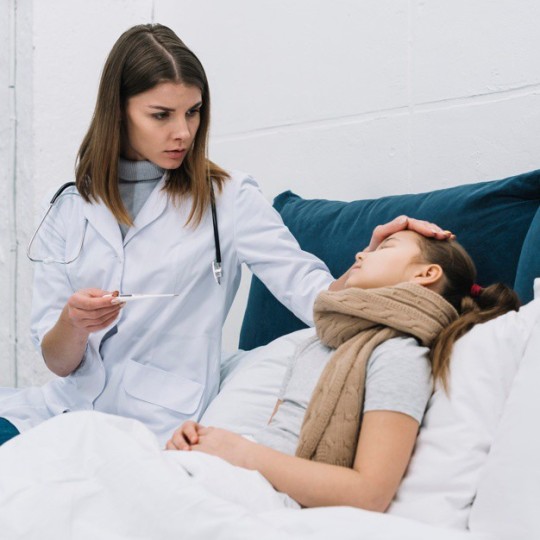
What Are The Common Symptoms Of Viral Fever
Oftentimes, people with a viral fever can have symptoms, including a runny nose, cough, nausea, and body aches. However, some people may mistake these symptoms for another illness.
Therefore, it is essential to recognize the symptoms of viral fever to initiate treatment in a timely manner. The common signs of viral fever to look out for are:
Fever that occurs at regular intervals.
The fever that comes with chills
Dehydration
Dehydration is one of the common symptoms of viral fever. When you have a fever, your body loses fluid through the surface of your skin in an attempt to lower your body temperature. This can lead to sweating and loss of electrolytes and reduced fluid intake, which can lead to dehydration.
Headache
Sometimes people can experience mild to severe headaches when they have a viral fever. Fever can cause changes in your body that can cause severe headaches. These headaches can be worse when accompanied by a cough, cold, or sneezing.
Body pain and stiffness
Body aches and pains are normal symptoms of viral fever. You may feel a dull ache or ache in some or all areas of your body. When you have a high fever, you often feel pain in your body. Also, the pain may be worse if the fever is accompanied by a cold or sneezing.
Loss of appetite
You may experience a loss of appetite during a high fever. When you get sick, your brain chemistry can change along with the production of chemicals called cytokines. These chemicals can reduce your appetite and you may not feel like eating.
Shaking chills
Chills or chills are some of the common symptoms of high fever. Chills are usually caused by rapid muscle contraction and relaxation. It is a way for the body to generate heat when it is cold.
Tired
You may feel tired or irritable if you have a viral fever. Also, your fatigue may be related to an underlying illness or infection, especially if it’s accompanied by shortness of breath or loss of appetite.
Dizziness
Some people often feel weak or dizzy with viral fever. This symptom can occur when your body is not getting enough blood or your blood pressure is low. Also, not drinking enough fluids can also make you feel dizzy.
Eruptions
Some people can also develop a rash during a viral fever. This type of symptom is more common in children. Viral rashes can occur due to infections such as mononucleosis, chickenpox, and measles.
Let’s move on to the diagnosis of viral fever
Your doctor will look at common symptoms of viral fever and ask for your medical history. It may also suggest blood tests to identify the presence of viruses in a person’s blood or urine. Based on the result of these tests, your treatment will begin.
Viral fever treatment
In most cases, viral fever may not require specialized treatment. However, unlike bacterial infections, viral fever may not respond to antibiotics.
Instead, viral fever treatment generally focuses on relieving your symptoms. Your doctor may suggest treatment methods, including:
Take over-the-counter fever medications to reduce fever and its symptoms.
Rest as much as possible
Drink plenty of fluids to stay hydrated.
Eat healthy foods to keep your body energized.
Sitting in a warm bath to lower body temperature
0 notes
Text
5 Most Common Food Allergies And Its Treatment
Do you have a burning sensation when you eat spicy foods or a stomachache after eating eggs or wheat? If so, this could be an indicator of food allergies.
Most people can sometimes experience these food reactions. Even good food can turn out to be bad for your body.
Food allergies can feel like bones in the throat. Most of us are allergic to either food. An unpleasant and annoying experience is often caused by food allergies. Today, 4,444 people suffer from common food allergies. Evolutionary changes in the immune system are often associated with modern lifestyle changes.
Food allergies occur because the immune system reacts abnormally to certain foods. Most food allergies occur in childhood.
However, these allergies can also occur in adulthood.
Eating allergic foods can cause your immune system to overreact. As a result, it may be accompanied by a mild rash and itching. Moreover, in the worst case, a terrible reaction can gasp you.

Food allergies can occur within minutes or hours after a meal. If you have an allergy, you may have the following symptoms:
Skin rash, redness, swelling, or itching
Runny nose or stuffy nose
Red or itchy eyes
Therefore, it is important to know about all the foods that cause these symptoms. Interestingly, food allergies are caused by the food we eat every day. Read on to learn more about some of the most common foods that can boost your immune system.
The most common types of food allergies are:
Eggs:
Eggs are one of the most common allergic foods, especially for children. Symptoms of this allergy usually appear minutes to hours after eating eggs or foods that contain eggs. Symptoms include sores and hives on the skin, stuffy nose, nausea, and vomiting.
In addition, people with egg allergies can develop anaphylaxis. Anaphylaxis is a life-threatening condition that affects breathing and shocks the body.
Why does this allergy occur? :
When a person with an egg allergy is exposed to an egg, the protein in the egg provokes a person's immune defenses and can cause a mild or severe reaction. Your immune system can overreact to egg white and yolk proteins. Avoiding egg-related foods can change the form of proteins that cause allergies.
Wheat:
Wheat Allergy is an allergic reaction that can be caused by any of the proteins contained in wheat. This type of allergy is most common in children. However, children with wheat allergies can grow up by the age of 10. In addition, this allergy can also occur in adults.
Some people have an allergic reaction when inhaling flour. Wheat allergies can cause indigestion, hives, vomiting, and, in severe cases, anaphylaxis. Symptoms of food allergies usually appear within minutes or hours of eating wheat.
What Causes Wheat Allergies? :
Wheat allergy is caused by hypersensitivity to certain proteins in wheat. Therefore, children or adults with wheat allergies should avoid wheat and products containing wheat.
Crustaceans: If you develop hives or abdominal pain after eating crabs or crustaceans, you may develop a crustacean allergy. Crustaceans are one of the most common food allergens. Shellfish include shrimp, shrimp, red shrimp, or squid. Eating any of these crustaceans can lead to crustacean allergies.
What Causes Shellfish Allergies? :
In this allergy, the immune system mistakenly identifies certain crustacean proteins as harmful. As a result, symptoms may appear on the body within minutes to an hour of ingesting the shellfish.
This allergy may not tend to go away over time. Therefore, people in this condition should exclude all shellfish from their diet.
Soy allergy? :
Soy allergies are rare in children and adults. Allergies are caused by soy protein. In addition, soy milk and soy sauce can also trigger the immune system. Symptoms range from itchy mouth to runny nose.
Why does this allergy occur? :
If you have a soy allergy, the immune system recognizes certain soy proteins as harmful. These soy proteins act as allergens in the immune system and release some harmful chemicals that can cause allergies. Avoiding soy is the best option for people with soy allergies.
Peanut Allergy:
Peanut Allergy can cause mild to potentially fatal allergic reactions. According to one study, this allergy affects almost 48% of children and 12% of adults. Peanut allergies usually occur within minutes of exposure. Symptoms can be a skin reaction, digestive problems, or a runny nose.
Why does this allergy occur? :
Eating peanuts or foods containing peanuts can cause allergic reactions that can damage the immune system. These chemicals can affect a variety of tissues in the eyes, skin, nose, and blood vessels.
Therefore, if you are allergic to peanuts, it is advisable to reduce peanuts.
Food Allergy Diagnosis:
If you suspect you have a food allergy, see a doctor immediately. Your doctor may perform some diagnostic tests to find out what is causing the food allergy. These tests include:
Diet Review: A detailed review of the foods you eat and their symptoms.
Prick test: In this test, a small needle is used to put a small amount of food into the skin. The test is run to monitor the response.
Blood test: In some cases, a blood test is done to check for specific antibodies.
Therefore, if you are allergic to peanuts, it is advisable to reduce peanuts.
Treatment Options:
Your doctor will determine the best treatment for you based on your diagnosis. However, the best remedy is to avoid food allergies. In addition, your doctor may offer you other treatment plans.
For mild allergic reactions:
Over-the-counter medications may help with mild allergic reactions.
Severe allergic reaction:
If you have a severe allergic reaction, you may need an emergency syringe. If your allergies are so severe that you cannot control them with medication, injections are recommended.
Precautions:
In addition to the treatment options listed above, some precautions should be followed in daily life.
Carefully label foods to avoid exposure to common food allergies.
Don't forget to take a break at restaurants and social gatherings, especially if you have a food allergy.
If you are allergic to food, you should avoid it
0 notes
Text
Common Types Of Gastrointestinal Surgical Procedures
Skilled surgeons perform gastrointestinal surgery to treat digestive disorders and gastrointestinal illnesses.
Gastroenterological Surgery is an extensive topic that includes a variety of surgical techniques. In addition, as a last resort, various gastrointestinal surgeries are performed to treat patients who do not respond to the drug.
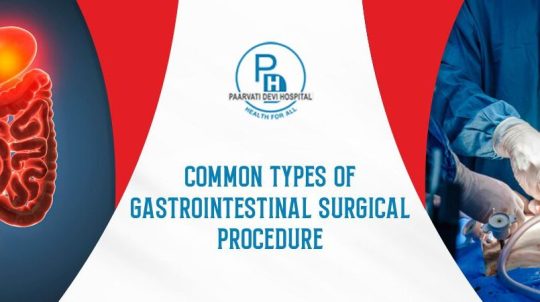
Gastrointestinal Surgery covers a variety of surgical techniques used to treat disorders of body parts such as the esophagus, stomach, small intestine, large intestine, liver, gallbladder, and pancreas.
As part of gastrointestinal surgical intervention, experienced surgeons treat diseases such as gallbladder disease, colon cancer, tumors or inflammation, and gastroesophageal reflux disease. Depending on the severity of the gastrointestinal disorder, your doctor may treat your condition as an open or minimally invasive procedure.
Common Types Of Gastrointestinal Surgical Procedures
Depending on the problem or illness, both open and minimally invasive surgery can be performed in the upper and lower gastrointestinal tracts.
Open GI Trial
The Open GI Trial requires significant reductions. In such surgery, an incision about 4 inches long is made. This procedure is a good option if your treatment area is inflamed, infected, or worried about previous injuries.
Some of the most common open Gastrointestinal Surgery procedures are:
Appendicitis Surgery
Appendectomy removal includes this procedure. As part of this emergency procedure, an incision or incision about 5-10 cm in length is made in the abdomen or the lower right side of the abdomen. The appendix is a thin pouch that attaches to the large intestine. However, if you have appendicitis, it should be removed immediately by surgery to avoid further complications.
Adrenalectomy
Adrenalectomy is open gastrointestinal surgery that removes one or both adrenal glands. When the gland is removed, it is called unilateral adrenalectomy. However, if both glands are removed, the procedure is called bilateral adrenalectomy.
This procedure is also recommended for patients with adrenal tumors. Successful procedures help correct hormonal imbalances and remove cancerous tumors before they invade other parts of the body.
Whipple Surgery
This is a complex surgery commonly used to treat other growth in or on the pancreas. This procedure is also used to treat diseases of the pancreas, intestines, or bile ducts. The surgeon will reconnect the rest of the digestive system after whipped surgery to ensure that food can be digested normally after surgery.
Minimally invasive GI procedure
The minimally invasive surgical approach is considered the gold standard of medicine. The minimally invasive gastrointestinal procedure goes one step further than the traditional gastrointestinal procedure. Minimally invasive surgery allows surgeons to perform surgery with smaller incisions. In some surgery, the surgeon uses a small camera to make a cut. 4,444 patients undergoing minimally invasive surgery have less pain, blood loss, and scarring. In addition, these surgeries have faster recovery times than open GI procedures.
Get the Treatment
Smt. Paarvati Devi Hospital strives to provide first-class care to all patients. Our Best general surgeons develop a comprehensive treatment plan for patients with gastrointestinal disabilities.
Providing accurate diagnosis and timely surgical intervention is the goal of our collaborative approach.
Book Today and Get the Health Results You Want.
0 notes
Text
What Are The Common Neurological Disorders And Treatments?
Neurological disorders are one of the major health problems facing people today. One of the most disappointing facts about these disorders is that they can affect people of all ages and health levels. These disorders can affect the entire neural pathway or a single neuron.
Neurological disorders are defined as disorders of the central or peripheral nervous system. These disorders affect the brain and nerves of the human body and the entire spinal cord.

However, symptoms may vary depending on the type of illness and the affected body parts.
Symptoms of Neurological Disorders
Symptoms of Neurological Disorders are easy to ignore, so many people don't even know they have Neurological Disorders. Therefore, it is important to understand the most common symptoms of neurological disorders to see a doctor immediately.
Headache
Headache can occur as a result of stress, malaise, and tension. However, if it affects your daily life, you should see a doctor.
Changes in vision
Blurred or blindness of vision can be due to an aging process or damage to the surface of the eye. However, this can also be a sign of Neurological Disorders
and should be seen by a doctor.
Weakness of limbs After
exercise, you may notice that your arms and legs become heavier or numb. However, if these feelings occur for unknown reasons, you should notify your doctor.
Obscure Speech
The main causes of obscure speech are the effects of malaise and alcohol. However, if you have an unclear utterance for any other reason, you may have a fundamental problem that requires medical attention.
Memory loss
This symptom is associated with several neuropathies. Slight forgetting is normal, but consult your doctor if it interferes with your daily routine.
Shivering
If you have been feeling the symptoms of involuntary tremors for a long time, or for no reason, you may have tremors.
General Neurological Disorders Understanding Neurological Disorders is important for easy identification of its symptoms and timely treatment. Some of the most common Neurological Disorders are:
Strokes
A stroke occurs when you experience brain damage due to inadequate blood flow to the brain, primarily caused by blood clots or blockages in arteries. There are two main causes of stroke.
Ischemic stroke
Occurs when blood vessels in the brain become narrowed or blocked, resulting in a significant decrease in blood flow.
Hemorrhagic stroke
This stroke occurs when a blood vessel in the brain leaks or ruptures.
This emergency treatment requires urgent treatment to reduce brain damage. Leaving a stroke untreated for an extended period increases the likelihood of brain damage.
Epilepsy
This condition is characterized by abnormal electrical inactivity in the brain. These abnormal activities can cause seizures. Seizures are defined as a sudden increase in electrical activity in the brain.
Epileptic seizures may be associated with brain damage or familial tendencies, but in many cases, the cause is completely unknown.
Dementia
Dementia is a group of illnesses, including Alzheimer's disease. It can lead to damage to your brain and continuous loss of brain tissue. In addition, it has the following effects.
Behavior
Emotions
Memories
Thoughts
Intervenes in daily life are sufficient as they explain the various symptoms of cognitive decline.
Parkinson's disease
This disease is a progressive disorder of the nervous system that affects your movements. The disease is associated with the motor system and is characterized by the loss of dopamine-producing brain cells. You may have tremors in your hands, arms, legs, or face.
Multiple sclerosis
A chronic disease that affects the central nervous system, including the brain, spinal cord, and optic nerve. The disease affects the insulating layer of nerve cells in the human body. Damage to these layers can lead to nerve damage and illness.
Smt. Parvati Devi Hospital: The best neurologist at Amritsar
Smt. Paarvati Devi Hospital treats all skull, brain, and spine problems. Our neurologists are specialists in handling complex cases. They also have the expertise to use the latest technology to achieve excellent surgical results.
Contact the Best Neuro Specialists in Amritsar when needed.
#Neuro Specialists in Amritsar#neurological disorders#symptoms of neurological disorders#treatment of neurological disorders
0 notes
Text
What Is A Brain Tumor? – Types, Warning Signs And Treatment
A recent report published by Cancer.net suggests that the chances of developing a brain tumor in life are less than 1%. Still, it ranks No. 10 in terms of deaths from many other neurological disorders. Difficult to digest, but brain tumors tend to cause more than 20,000 deaths each year, and the number appears to be increasing.
According to neurosurgeons, the underlying reason for this remains people's lack of awareness and careless attitude. People often avoid warning signs and delay treatment.
Let's understand what a brain tumor is, its symptoms, and substantial treatments for early detection and timely treatment.

What is a brain tumor?
The human body is made up of cells that develop, divide and multiply with natural bodily processes. The process replaces damaged cells with new cells in all parts of the body. But sometimes the body makes mistakes, resulting in the formation of abnormal cells. To counteract this, the body's natural mechanism strives to destroy all abnormal cells.
However, when the growth of abnormal cells bypasses their rate of destruction, the result is the formation of tumors. The presence of these abnormal cells in the brain forms a brain tumor. The warning sign of a brain tumor refers to a mass or mass of abnormal cells that grow and multiply out of control.
What are the types of brain tumors?
According to the World Health Organization, there are more than 120 types of brain tumors, which are generally classified as primary or secondary brain tumors. In succession, doctors determine the grade of the brain tumor to form a treatment plan dedicated to the patient.
Let's understand the types of brain tumors to:
Primary brain tumor
Tumors that tend to take hold in the brain and stay there are called primary brain tumors.
Secondary brain tumor
Tumors that are slightly more common than the first tend to grow in another part of the body and then move to the brain. For example, lung, breast, kidney, or skin cancer has a high chance of reaching the brain and causing brain tumors.
Now, after finding the type of brain tumor, doctors look for cancer cells and classify the tumor as follows:
Benign brain tumors
Tumors that do not have cancer cells are called benign brain tumors. These tumors tend to grow slowly and rarely affect the tissues around them. But that doesn't make them any less lethal to patients. Therefore, as soon as benign tumors are found in the body, it is highly recommended to remove them.
Malignant brain tumors
Unlike benign tumors, malignant tumors tend to grow rapidly and also invade the surrounding tissues. This is because they have cancer cells that make them very dangerous and often grow beyond the spinal cord.
Malignant or benign, doctors measure the grade of both types of tumors to determine the appropriate treatment for the patient. The classification gives an idea of how quickly a tumor can grow and spread.
The scoring system can be divided as follows:
Grade 1: When cells appear normal and grow at a normal rate, the tumor falls into the grade 1 category. These tumors have the lowest death rates, which means long-term survival.
Grade 2: Observed and abnormal tumors that invade nearby tissues are measured as grade 2. A person with grade 2 tumors is at risk of death.
Grade 3: Cells that grow exponentially and appear abnormal fall below grade 3. There is a good chance that they will reproduce.
Grade 4: Tumors in this grade have the most abnormal-looking cells, which grow rapidly. The patient is at a very high risk of a fatal outcome.
Signs and symptoms of a brain tumor?
Symptoms of brain tumors vary from patient to patient depending on the type of brain tumor and the extent of the damage.
However, the most common symptoms seen in every patient include:
The appearance of headaches becomes progressively more severe and frequent.
Nausea or vomiting
Vision problems that end in double vision, blurred vision, or loss of peripheral vision.
The gradual loss of movement and sensation in the arms or legs.
Difficulty speaking, listening and balancing.
What are the risk factors for developing brain tumors?In most cases, the underlying cause of a brain tumor is unknown. However, recent studies have explored certain factors that can increase the chances of harboring brain tumors. Risk factors tend to increase the chances of a brain tumor, but should not be confused with being the cause of a brain tumor.
Therefore, it is essential to be aware of these risk factors and to make informed decisions regarding lifestyle changes. Therefore, risk factors include:
Age:
According to various studies and observations by neurologists in Amritsar, brain tumors tend to occur in children and the elderly compared to other age groups. However, this may not be true in all cases.
Gender:
Another observation made indicates that men are more likely to have a brain tumor than women. However, women tend to be at higher risk when it comes to meningioma (a type of brain tumor).
Family history:
The transmission rate of brain tumors is 5 to 10% according to the study. If you have a history of brain tumors in your family and it also shows signs, it is time to see the doctor as soon as possible.
Exposure to allergens and chemicals:
Being exposed to a specific set of allergens or chemicals can increase the risk of brain tumors. You can see a list of all chemicals that increase the risk of brain tumors published by the National Institute for Occupational Safety and Health. Therefore, your calling is to be careful when you are at home or at work and avoid being exposed to such chemicals.
Exposure to radiation:
Ionizing radiation is another very common factor that increases the risk of brain tumors. Radioactive fallout often spreads such radiation, which is the rarest of rare cases. However, certain high-radiation cancer treatments or therapies are the leading cause of ionizing radiation exposure, increasing the risk of brain tumors.
0 notes
Text
6 Signs You Need To See A Gastroenterologist
Did you know
Every year 20% of women and 10% of men report gallstones, 1/3 of the population complains of GERD (gastroesophageal reflux disease), 2 out of 4 people have inflammatory bowel disease.
Without a doubt, these numbers are explicit enough to understand how many gastrointestinal problems affect people around the world. However, people cannot solve problems with the right treatment at the right time because they are unaware of the symptoms. This delay in obtaining medical assistance from the best gastroenterologist often leads to increased complications.
Therefore, it is highly imperative to recognize gastrointestinal problems by knowing common symptoms and then receiving substantial treatment.

To address all the common gastrointestinal problems, we have listed all the common symptoms that indicate you need to see a gastroenterologist.
Let us begin!
Red signs that require early medical attention include:
Abnormal stools
Constipation and diarrhea are common digestive problems that can be corrected with a proper diet. However, if you experience abnormal bowel movements that persist over time, it is a sign of a serious problem with the digestive system that needs to be addressed.
Passing fewer than three bowel movements in a week can signify a neurological disorder, hormonal or muscle dysfunction, blockage, diet, or other factors.
Now suppose you are concerned about diarrhea. In this case, the underlying reasons include a viral or bacterial infection, lactose intolerance, the side effect of any medications, digestive disorders such as Crohn's disease or ulcerative colitis.
But in any case, to find out the exact reason, you need to consult the best gastroenterologist.
Bloating and abdominal pain
If abdominal pain or bloating is a one-time or occasional occurrence, there is nothing to worry about or see a specialist. However, if it tends to develop into a prolonged condition (for example, after every meal), you should seek medical assistance.
If, in addition to severe pain and bloating, you experience nausea and throbbing stools, immediately schedule an appointment with a gastroenterologist.
Rectal bleeding
Another unusual sign that indicates the need to consult an expert gastroenterologist is the presence of blood in the stool. Rectal bleeding occurs as a result of a problem in the digestive tract.
This is not a definite underlying reason for rectal bleeding, but it can occur due to an anal fissure, hemorrhoids, or even cancer. Therefore, it becomes imperative to consult the best gastroenterologist in case of rectal bleeding.
Sudden and unexplained weight loss
Losing weight without effort is like a dream come true. But, experiencing effortless steady weight loss, in reality, is certainly a cause for concern. Sudden weight loss can be an indicator of Crohn's disease and celiac disease.
However, the real reason will be determined by a gastroenterology expert. They will also help you rule out other possible reasons, such as pancreatic, colon, or stomach cancer, by discovering the right reason.
Throat knot
There is nothing abnormal about a sore throat that causes difficulty swallowing function. A lump in your throat and cold symptoms may not seem serious at first. However, if it does not go away, you should knock on the door of a gastroenterology specialist. Not always, but it can be a sign of esophageal cancer. So, for an accurate diagnosis, consult a specialist.
Acidity
Another very important sign of a digestive disorder is constant heartburn. Gastroesophageal reflux disease or GERD is the leading cause of heartburn. However, an endoscopy performed by an expert physician would help you determine the correct cause of the discomfort. To see a gastroenterologist and get regular screenings.
Consult the gastroenterologist:
If you notice any of the symptoms, do not delay in making an appointment with the expert gastroenterologist. It's always better to be safe than sorry later. You won't always experience a severe pathway disorder, but ignoring the signs is never a good choice.
So once you know the above symptoms, see the best gastroenterologist in Amritsar available 24/7 on Smt. Paarvati Devi Hospital. With deep knowledge and experience of the whole
0 notes
Text
It's Time To Know Why Medical Checkups Are Necessary

Since it's impossible to predict the future, it's best to be prepared for it. That's why modern medicine recommends that people go through medical examinations on a regular basis in order to identify upcoming problems in their health before they grow into full-fledged disease.
Hospitals are now increasingly trying to convince people of the importance of regular check-ups, although it can be difficult to change some people's minds.
Value Of Routine Health Check-Up
There are various reasons to get routine health check-ups. A physical check-up is a way to weigh your state of health and to assist in the diagnosis of any possible health problems that may be present.
Regular health check-ups can help you detect any health conditions in their early stages, when they might be easier to treat. Some diseases are so insidious that they can be a threat to your life. To avoid these diseases, it is highly recommended that you should stick to regular checkups.
People who lead unhealthy lifestyles such as sitting too much, staying indoors all day, and eating unhealthy food should go to the doctor more often.
Routine Health Check-Up Is A Way To Save Big By Spending Less
A common mistake people make is thinking that getting a check-up would be too expensive and unnecessary. But staying unaware of your actual state of health can result in unpredictable expenses later on. Early detection and treatment can avoid potential health conditions from getting worse.
What Is The Recommended Duration Or Frequency To Get Health Check-Ups?
The duration for health-check would vary depending on current health condition, age, and risk factors. Though routine health check-ups with a regular healthcare provider are normally recommended as below:
Once in a year for people aged 50 or above.
Once in three years for people having sound health and aged under 50
For people having chronic health issues like COPD or diabetes, the recommended health check-up frequency
Why Medical Check-Up Is Important
Medical check-ups are one of the major routine medical procedures that every patient has to go through at some point in his life. The purpose of these check-ups is to make sure that anything that can affect the health of the patient has been ruled out and to make sure that there aren't any problems that would jeopardize his overall health and lead to complications or even prolonging his life. Medical check-ups should be performed at least once in a person’s lifetime.
A renowned hospital in Amritsar have marked excellence by providing the best healthcare services to individuals. Equipped with state-of-the-art medical equipment and physical examination tools, they commit to deliver precise medical check-up results.
Click here to know more
0 notes
Text
Body Cooling Foods You Need During Indian Summers

During summers many do not feel like eating cooling foods due to heat. Being outdoors more often—and sweating—ups your risk for health problems such as dehydration, skin sensitivities, and vitamin and mineral deficiencies. It is important to have a good diet (nutrition) as well as hydrate yourself during summer.
Here are 10 simple tips for summer that everyone can follow. Eat Fresh Seasonal Fruits And Vegetables
Get More Protein
Add Curd
Jowar And Jaun (Barley) Water
Sabja Seed
Jeera (Cumin Seed)
Coconut Water
Hydrate With Normal Water Or Infused Drink
Cook Right
Exercise
Conclusion
The summer season is very hard on our bodies, behavior, and our electricity bills. The rising temperature can slow us down because it will affect our health too much. At Smt. Parvati Devi Hospital (hospital in Amritsar), we have a highly qualified and experienced team of doctors to serve you with the best suggestions and treatment for all the summer related health issues.
Summers also bring a lot of skin diseases that not affect adults but also children. The department of Cosmetology and Dermatology at Smt. Parvati Devi Hospital offers comprehensive treatment for skincare diagnosis.
Click here to explore more.
0 notes
Text
How Do You Get Rid Of A Urine Infection?

If you are prone to repeated UTIs, you can stop them before they appear.
Most people experience this unwanted situation at least once in their life. Urinary tract infections affect millions of people each year. However, women have a higher risk of urinary tract infections than men.
Our urinary tract is made up of the bladder, kidneys, and uterus, which process and excrete urine from the body. It is responsible for expelling waste in the form of urine. Infections from any of these bladder sites are called urinary tract infections or urinary tract infections.
Urinary Tract Infection [UTI] Occurs when bacteria enter the urine and travel up to the bladder. If the infection is limited to the bladder and urethra, it is called a lower urinary tract infection or cystitis. However, in more severe cases, this infection can spread to the rest of the urinary tract, affecting the bladder and kidneys.Urinary tract infections do not always cause signs and symptoms. If you have ever experienced a urine infection, you may notice some common symptoms, including:
• Frequent urination
• Urgency
• Blood in the urine
• Dark or strong-smelling urine
If you experience any of these signs and symptoms urinary tract infection, you should consult your doctor. The best way to diagnose a UTI is through a urinalysis. Additionally, your doctor may also recommend a number of other tests.
The test to diagnose a urinary tract infection is:
• Urinalysis: This test looks for red blood cells, white blood cells, and bacteria in the urine. The number of these white blood cells and red blood cells in the urine can indicate an infection.
• Urine culture: Urine culture is used to determine the type of bacteria in the urine.
• CT scan: A CT scan is like an X-ray that scans a cross section of the body. This test is usually similar to an X-ray and you will get a clear picture of the infection.
• Ultrasound: In this test, sound waves create images of internal organs. With this test, the doctor can check the severity of the infection.
Depending on the results and severity of the infection, your doctor may recommend a treatment plan. Treatment of urinary tract infections depends on the part of the tube involved. Antibodies are often the first line of treatment for UTIs. However, home remedies can also be beneficial in treating urine infections. However, if your condition is severe, antibodies are always the first option.
Take antibiotics
Home remedies for urinary tract infections
Instead of antibiotics for urinary tract infections, you can try these home remedies mentioned below.
Stay hydrated
Urinate when needed
Get enough vitamin C
Reduce bladder irritants in your diet
Use heat to relieve pain from urinary infections
Consider herbal therapy
Smt. Paarvati Devi Hospital: Amritsar
Smt. The best urinary doctor. As we all know, Paarvati Devi Hospital offers first-class treatment for all patients. Our best urologist in Amritsar has many years of experience treating complex surgeries.
Click here to know more
0 notes
Text
What Are Neurological Disorders? Conditions and Treatments
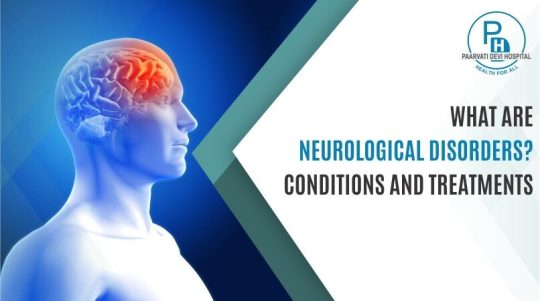
The term “neurology” refers to the anatomical structure and function of the nerves and the nervous system.
These types of neurological diseases refer to diseases related to our brain, nerves or nervous system. Although it tends to affect the human central and peripheral nervous system, it is also prone to the spinal cord, autonomic nervous system, neuromuscular junctions, cranial nerves, nerve roots, and muscles.
Diseases of the nervous system are serious problems that affect communities of millions of people around the world. According to the World Health Organization, more than 6 million people die from stroke each year, and almost four-fifths of deaths from neurological diseases occur in developing and underdeveloped countries.
It is estimated that patients with epilepsy, dementia and Alzheimer’s disease are 50, 47.50, and 7.7 million, respectively, each year. Surprisingly, 10% of the world’s population suffers from migraine.
CONDITIONS AND TREATMENTS OF NEUROLOGICAL DISORDER
Medical science has recorded approximately 600 diseases of our nervous system. Some serious diseases that affect our brain include dementia, aneurysms, Parkinson’s disease, brain tumors, and less common diseases such as frontotemporal dementia.
Here are several treatments for neurological diseases:
Dementia
Dementia problems are likely to cause short-term memory loss and other problems. It is characterized by a decline in memory, problem solving, language, and other cognitive skills that affect the individual’s daily tasks.
Dementia Treatment
Experts prescribe various medications to improve your symptoms. In most cases, the drugs used are the same as for Alzheimer’s. For now, we need more funding and volunteers to participate in research into effective new treatments for dementia. suggests that by choosing a healthy lifestyle, eating a healthy diet, quitting smoking, and exercising regularly, you can reduce your risk of memory loss and dementia. People with dementia should not miss a meeting with our neurologists in Amritsar, who are good at using strict medications.
Brain Aneurysm
Avoid Fatal Consequences!
Our neurologist in Amritsar recommends immediate medical attention to prevent early unruptured brain aneurysms.
Aneurysm Treatment
Being the most effective endovascular treatment for aneurysm treatment. During the operation, a small plastic catheter is inserted from the leg artery into the cerebral artery and then into the aneurysm using different techniques, such as: •
Clipping of the aneurysm
Embolization of the duct
Entanglement of the aneurysm
Sometimes traditional treatment is better than intravascular technology
ABOUT SMT. PARVATI DEVI HOSPITAL
Smt. Parvati Devi Hospital is known as one of the best hospitals for the treatment of neurological diseases.
SPDH has all the facilities of the Level 1 Neurology Trauma Center, with facilities such as high-resolution ultrasound, X-ray laboratories, research laboratories, and computed tomography.
We are obligated to carry out comprehensive treatment in our intensive care unit to save the precious life of every patient diagnosed with a brain disease.
Our best neurologist in Amritsar knows that the symptoms mentioned above can prevent the severity of certain diseases.
4,444 patients suffering from dementia, brain tumors, aneurysms, concussions, etc. They were successfully cured under the treatment of our neurologists.
If you are fighting any of these diseases, call us, we are the most important neurological hospital, responsible for curing people with any type of neurological disease.
Click here to continue reading – What Are Neurological Disorders? Conditions And Treatments
.
0 notes
Text
What Are The Most Common Causes Of Kidney Stones?
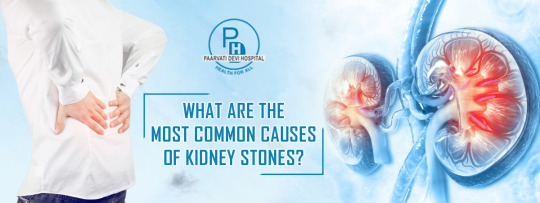
Don’t ignore your kidneys, or your kidneys will ignore you.
This multifunctional organ in our body acts as a metabolic engine, filtering blood through millions of capillaries. However, a sedentary lifestyle puts us at risk of kidney stones and chronic kidney disease.
If you have ever had a kidney stone, you might not want it to happen to your worst enemy. But, unfortunately, this is a major problem that will only get worse over time. One in ten people have kidney stones at some stage in their lives.
As the name suggests, kidney stones form in the kidneys. As a result, you may experience discomfort in the kidneys or adjacent areas (such as the lower back, abdomen, and groin).
But have you ever wondered how kidney stones are formed?
When urine contains more crystalline substances such as calcium, oxalate, and uric acid, kidney stones will form. If your urine is lacking in substances that prevent the crystals from sticking together, kidney stones can also form. Therefore, it creates an ideal environment for the formation of kidney stones.
A variety of kidney stones can form in the kidney. They are:
Calcium oxalate [80-85% of stones]
Calcium stones are the most common kidney stones in people. Oxalate is a substance that forms the liver every day. It is most commonly found in fruits, vegetables, nuts, and chocolate. In addition, high doses of vitamin D and certain metabolic disorders can also increase the concentration of calcium in the urine.
Struvite [5-10% of stones]
These stones may be formed by a urinary tract infection [UTI]. Bacteria can cause infections to build up in the urine. This infection will increase the chance of large stones forming.
Cystine stones [10% of stones]
These stones form when the kidneys lose too much of a specific amino acid called cystine in the urine.
Uric acid stones [5-10% of stones]
These stones form in people who have lost too much water due to chronic diarrhea or a high protein diet. Certain genetic factors can also increase your risk for uric acid stones. Chapter
These Stones Didn’t Form Overnight Also, a variety of reasons can increase the risk of kidney stones.
Read on to understand the factors that may increase the risk of kidney stones
Water shortage
Poor diet
Sodium intake
Animal protein
Obesity
Smt. Paarvati Devi Hospital: Amritsar
Smt. The best nephrologist. Parvati Devi Hospital is famous for its excellent and advanced medical services. Our kidney specialists have extensive experience in treating kidney problems.
Protect your kidneys and protect your health. Make an appointment with the best kidney doctors in Amritsar.
Click here to continue reading
0 notes